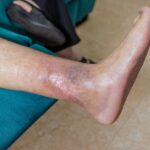PCOD is a hormonal disorder that causes enlarged ovaries and small cysts on the outer side. PCOD affects 5-10% of girls and women between 12 and 45. It is a concerning and commonly occurring medical condition that is often ignored. There is inadequate awareness of PCOD and its implications for women’s health. Discussing and teaching our daughters about PCOD and the risks associated with the disease is critical.
Please read the article till the end to understand PCOD and its symptoms in detail, along with exclusive tips regarding its prevention and cure.
What Is PCOD?(PCOD Kya Hota Hai?)
Polycystic Ovarian Disease (PCOD) is a medical condition that affects 9–22% of Indian women. In this condition, ovaries start producing large quantities of immature or partially mature eggs, and these underdeveloped eggs form cysts in the ovaries. Due to the cyst formation, the ovaries enlarge and start to secrete a male hormone called androgens. It further generates problems like infertility, irregular periods, hair loss, obesity, acne, etc. If PCOD is left untreated, it can lead to problems like diabetes, high cholesterol, and heart disease.
Related Blogspot:
What Causes PCOD?
PCOD results from hormonal imbalances and genetic tendencies and does not occur due to one specific issue. Multiple factors are responsible for causing PCOD, which are explained in detail below:
-
Family History
There is a 50% chance of you getting PCOD if your immediate female relatives suffer from it. Research suggests that genes might be linked to PCOD.
-
Insulin Resistance
Around 70% of PCOD-suffering women have insulin resistance. Excess insulin secretion leads to the formation of the male hormone androgen.
-
Low-Grade Inflammation
PCOD is due to long-term, low-grade inflammation that leads to androgen production in the ovaries.
-
Obesity And Lifestyle Choices
Weight gain and obesity contribute to the development of PCOS. It is an obesity-related condition, and lack of a healthy lifestyle and nutritious food also leads to PCOD.
PCOD Symptoms
The symptoms of PCOD vary from person to person, yet; the below-listed symptoms are the ones seen the most in PCOD sufferers. We recommend consulting a trusted and qualified medical professional if you face these symptoms.
- Irregular Menstrual Cycle
- High Androgen Production
- Ovarian Cysts
- Enlarged Ovaries
- Hirsutism
- Skin Tags
- Dark or thin skin patches
- Acne
- Weight Gain
Health Complications Related To PCOD
A PCOD diagnosis results in concerning lifelong health complications. It also raises the chances of contracting other potentially fatal diseases. Here are some of the PCOD health implications:
- Infertility
- Obesity
- Diabetes
- Metabolic Disorders
PCOD Preventions And Cures
The polycystic ovarian disease is an incurable hormonal disorder. However, it can be controlled under the proper guidance of qualified medical personnel. Generally, the following PCOD prevention methods are advised by gynaecologists:
- Physical activity for 15-20 minutes every day
- Achieving a healthy weight as per your BMI
- Intake of a balanced diet
- Maintaining blood sugar levels
- Hormone Regularisation
If you have questions regarding PCOD or any other ladies’ problem, you can always try checking out Chhaa Jaa, as they have all the answers to ladies’ problems.
















